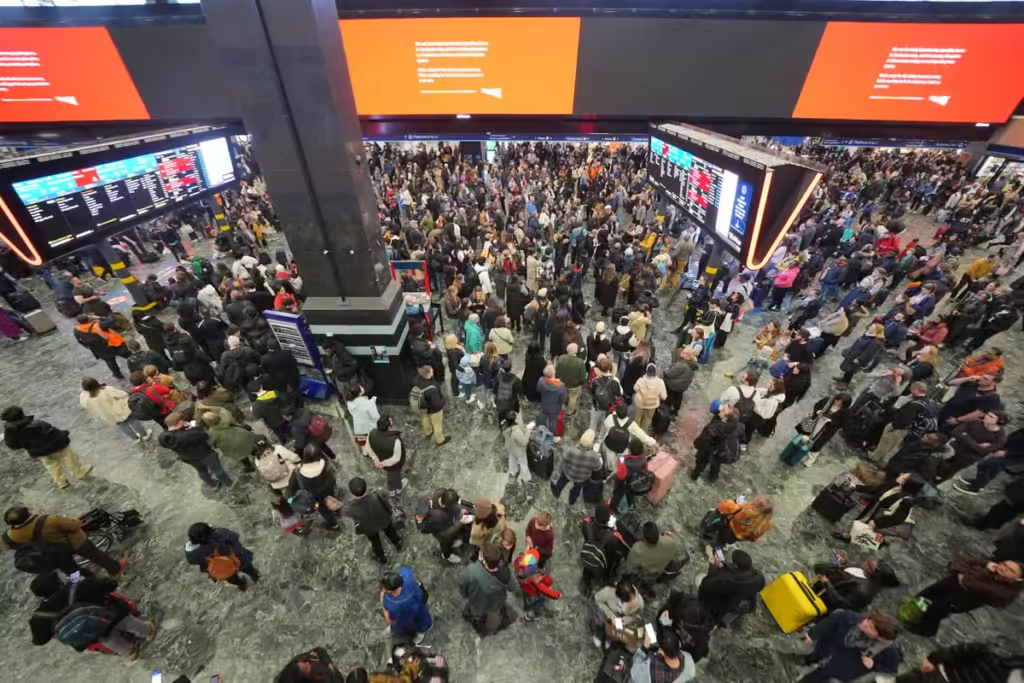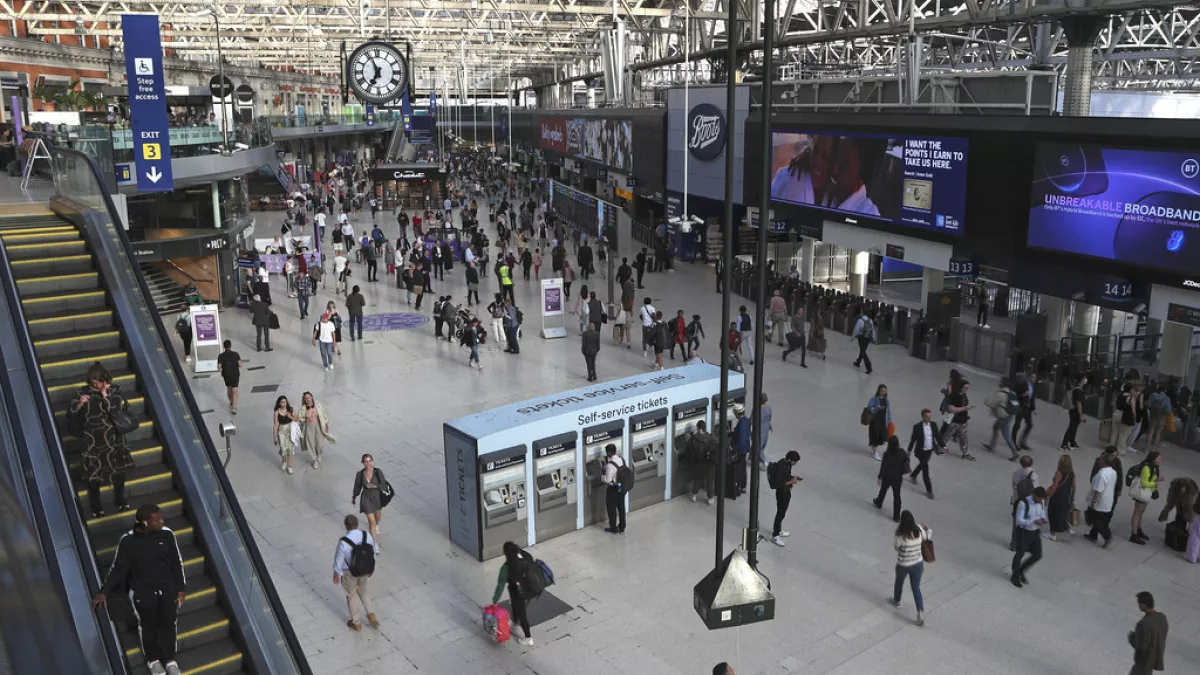In late September 2024, a shocking cyberattack hit UK railways. This attack affected public Wi-Fi at 19 major stations nationwide. Manchester Piccadilly, Birmingham New Street, London Euston, and Glasgow Central. The Wi-Fi users saw alarming messages about terrorism in Europe. This caused fear and confusion.
What Happened?
On the evening of September 25, 2024, people at busy train stations in the UK saw a scary message while using public Wi-Fi. The message first said, “We love you, Europe.” Then, it showed hurtful things about Muslims and mentioned terrorist attacks. Many people were shocked and scared. They didn’t expect to see this while using their phones or checking emails.
The stations affected were big ones like Manchester Piccadilly, Birmingham New Street, and some busy London stations. Network Rail, which runs the stations, turned off the Wi-Fi to stop the messages from spreading.

How Authorities Responded?
After the cyberattack was found, the British Transport Police (BTP) started investigating. The police were told about it at 5:03 p.m. on September 25. They quickly worked with Network Rail to find out who did it. Officials told the public not to worry. No personal information was stolen. The Wi-Fi service does not collect any personal details.
Telent, the company that provides the Wi-Fi, said the hacker used a real admin account to access the system. This made the attack worse because it wasn’t just an outside break-in. The hacker got deeper into the system by using a real account.
Impact on Passengers
For many passengers, this cyberattack caused confusion and fear. Instead of the normal Wi-Fi login page, they saw a scary message. It talked about terrorism and hate against Muslims. Some passengers were so worried that they told the police about it.
Network Rail turned off the Wi-Fi at all the stations where this happened. They did this to stop the bad messages from spreading. Many public Wi-Fi users were inconvenienced. But, we had to keep everyone safe.
Thankfully, no personal data was stolen. The Wi-Fi at these stations is “click-and-connect.” This means passengers don’t need to give any personal information to use it. Because of this, the hackers couldn’t cause much more damage.
Connection to Previous Cyberattacks
This attack happened weeks after another cyberattack on Transport for London (TfL). TfL runs London’s buses and trains. In early September 2024, a cyberattack on TfL exposed customer info, like names and contact details. People worried that even bank account details might have been stolen. A 17-year-old was arrested for the TfL attack but was later let out on bail.
Hackers have been targeting public transport systems more often in recent years. These systems are used by millions daily. They are a target for criminals. Hackers usually look for weak spots in public Wi-Fi, which can be easier to attack.
Public Wi-Fi and Cybersecurity Risks
This cyberattack shows the dangers of using public Wi-Fi. Hackers often go after busy public Wi-Fi, like at train stations, because many people use it. Home Wi-Fi is safer than public networks, which makes it easier for hackers to attack public Wi-Fi.
The hackers didn’t steal personal data. They used the Wi-Fi login page to send harmful messages. This shows how easily someone can take over a public Wi-Fi network and change what people see.

How You Can Stay Safe on Public Wi-Fi
While public Wi-Fi is convenient, staying safe while using it is essential. Here are some tips to help you protect yourself:
- A VPN adds an extra layer of security when you connect to public Wi-Fi. It helps hide your online activity from potential hackers.
- Don’t use public Wi-Fi for payments or banking apps. Hackers could try to steal your information.
- Make your passwords hard to guess and unique for each account. This makes it harder for hackers to gain access to your accounts.
Ongoing Investigation
The investigation into the cyberattack is still happening. The British Transport Police and Network Rail are looking into it. They are also trying to find ways to stop this from happening again.
Telent, the company that runs the Wi-Fi, said an admin account changed the messages on the login page. This means someone with access to the Wi-Fi might have helped or been hacked.
This cyberattack has made people question how safe public Wi-Fi is. It also shows the need to stop attacks like this in the future. Network Rail will add more security to prevent it from happening again.
The Bottom Line
The cyberattack on UK railway stations shows the need for strong cybersecurity in public spaces. No personal data was stolen. But, the Wi-Fi messages scared many passengers. Authorities are working hard to investigate the attack and prevent a recurrence.
As we rely more on technology, we must be aware of the risks. We must protect ourselves, especially on public Wi-Fi.
Thank you for reading, click the link below to read our other Articles:
https://insidesuccessmagazine.com/category/trending
Inside Success presents to you our digital platform, created to inform, inspire and empower 16-35s. Through our articles, we aim to bring bold ideas, fresh voices and real conservations to life. From mental health advice, to career information, and fashion tips to social issue debates, Inside Success is proud to have created a platform that has something to cater to everyone.




Leave a Reply
You must be logged in to post a comment.